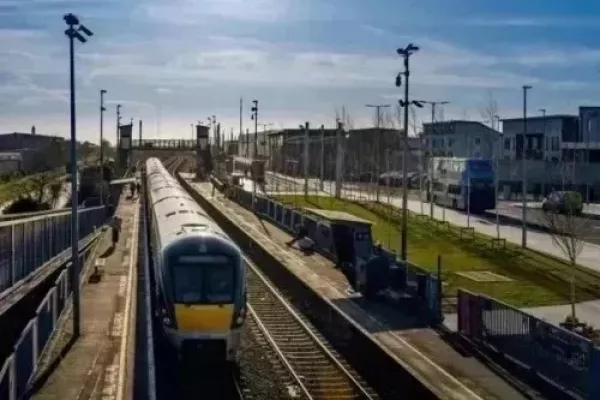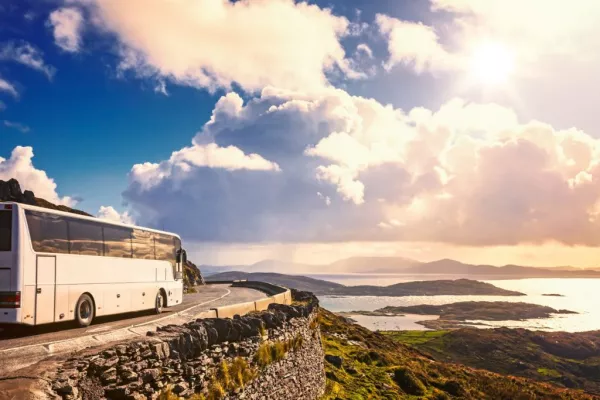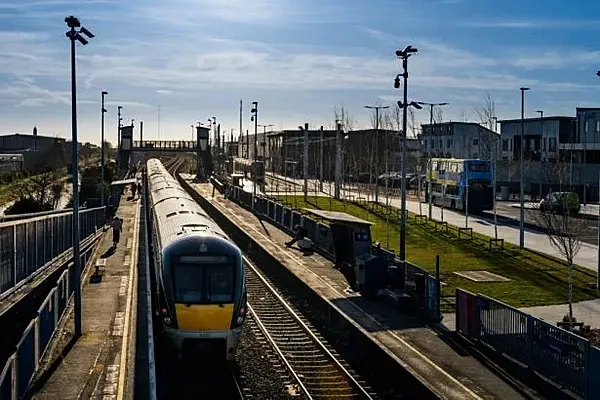Minister for Transport Eamon Ryan and Minister of State with special responsibility for road safety Jack Chambers have welcomed the signing into law of the Road Traffic and Roads Act 2023 by President Michael D. Higgins.
Details
According to a statement published on Gov.ie, this act is a wide-ranging and significant piece of legislation that delivers on key commitments in the Programme for Government and reflects the many new ways people are choosing to travel today. One clear example is the use of e-scooters and e-bikes which are now commonplace, when a few years ago these modes of transport did not exist.
This act will modernise and future-proof Ireland's regulatory system to ensure that we can adapt to new technologies as they continue to emerge. Critically, it will improve road safety for everyone by balancing the uptake of the new forms of mobility with the needs and safety of other road users like pedestrians or pedal-bikers.
One of the most significant provisions in the Act is the resolution of legal barriers to e-scooters. E-scooters, while a regular part of our streetscape, are not yet legal to use on public roads. This act introduces a new class of vehicle called personal powered transporters (PPTs). Regulations can now be commenced to classify e-scooters as PPTs, allowing the minister to specify appropriate power, speed and weight values, along with other technical and usage requirements for e-scooters. Until the regulations are in place, e-scooters will remain illegal for use on public roads. Once the regulations are in place, those that do not comply with them will be illegal to be used on public roads.
The technical e-scooter regulations must, under EU law, be notified to the European Commission for review, to ensure that they comply with Single Market rules before they come into effect (this is known as the "TRIS" process). This process takes a minimum of 12 weeks. When the TRIS process is successfully concluded, the regulations can be introduced. This will likely be in Q4 of 2023. Compliant e-scooters may then be used on public roads.
The act will also put e-bikes on a legal footing. E-bikes with a maximum power output of 250W and a motor cut-off speed of 25km/hr will be treated as bicycles under Irish law. E-bikes that can go faster than 25km/hr or have a power output greater than 250W, and those that can operate without pedalling will now be classified as an e-moped. Under the new categorisation, e-mopeds will be seen as motorised vehicles which will require a licence, registration, tax and insurance to be used on Irish roads.
The new rules for e-mopeds will come into effect once the administrative arrangements for registration, driver testing, driver licensing and taxation are in place, which is expected to be in Q1 2024. Owners of e-mopeds will not need to make any changes yet and can continue to legally use their e-moped like a pedal cycle or e-bike until then.
The statement published on Gov.ie quoted Minister Ryan as saying, "I am very pleased that this substantial act has been enacted into law. It will make our roads safer for all road users and give legal certainty to those who are choosing to get around on new forms of mobility. Importantly, these provisions will help encourage more people to choose new convenient ways to travel that help them avoid time-wasting congestion and gridlock. In doing so, they will contribute to freeing up road space, which in turn means that we can allocate more space to provide improved, faster and more frequent public transport and walking and cycling infrastructure.
"This act also means that the roll-out of BusConnects can continue to advance as new and essential powers are introduced to relevant authorities for the delivery of core bus corridors. We know even over the past year that when public transport is put in place people are flocking to it. Public transport and walking and cycling numbers are only going one way. This new act will be a springboard for even greater transformation of our streetscapes, our walking and cycling infrastructure and ultimately our environments.”
The statement published on Gov.ie quoted Minister Chambers as saying, "As minister with special responsibility for road safety, I welcome the many aspects of the Road Traffic and Roads Act which will improve safety on Irish roads. The misuse of scramblers, quad bikes and similar vehicles has been a recurrent issue in our society and these measures will allow us to regulate their use in spaces such as public parks, beaches and other public land. An Garda Síochána will now be allowed to seize these vehicles when they are used in a manner that puts members of the public at risk.
"Further increasing road safety will be the introduction variable speed limits on the M50. New powers will be given to Transport Infrastructure Ireland (TII) to manage traffic better and make it safer for its users. These measures are also supported by the completion of the motor insurance database to protect law abiding citizens from uninsured drivers."
Other key provisions within the act include:
- New powers for Garda to seize and dispose of scramblers and other vehicles used dangerously whether at the scene or where the vehicle is kept. It will also be an offence to drive these vehicles dangerously on all terrain and make it possible to prosecute wherever dangerous driving takes place.
- Providing for the introduction of variable speed limits in Ireland and specifically the M50 in the first instance. This will allow variable speed limits to be enforceable.
- Providing for a framework to allow for regulated use of CCTV cameras and other data-gathering devices by local authorities and TII on the public road network.
- Provisions to support the NTA’s planning application for the core bus corridors to provide for the continued roll-out of BusConnects infrastructure.
What The Roads Traffic And Roads Act 2023 Includes
Powered Personal Transporters (PPTs)
The Road Traffic and Roads Act 2023 creates a new vehicle category, powered personal transporters, including e-scooters and future micro-mobility devices as needed. PPTs do not require registration, motor tax, insurance or a driving licence to use on Irish roads.
The power, weight and design speed of PPTs are capped at:
- Maximum continuous rated power output of up to 500 W
- Maximum net weight of 25 kg (battery included)
- Maximum design speed of up to 25 km/hr
While the 2023 Act specifies these values for all PPTs, the Act allows the Minister to vary them in regulations for particular PPT types.
Any type of PPT will not be legal to use until specific regulations are in place. The Department of Transport is preparing regulations for e-scooters. There are no plans to regulate for any other PPT and they will remain illegal to use on public roads.
E-bikes
The Act clarifies the legal position on e-bikes.
- There is no change to the legal status of pedal assist e-bikes with a power output up to 250W and where the motor cuts out at 25 km/h and does not operate without pedalling. These will continue to be classed as pedal cycles.
- People who own, or are considering buying, an e-bike below these thresholds can continue to use them on public roads and in cycle and bus lanes. They will not need to register, tax or insure their e-bikes or hold a driver's licence.
- E-bikes, like bicycles, are not permitted to use footpaths or motorways.
New classification of e-bikes capable of speeds above 25km/hr
- E-bikes with a power output over 250W or where the motor does not cut out at 25km/hr or continues to operate without pedalling will now be classified as an e-moped. They will be classed as mechanically propelled vehicles (MPVs), as for mopeds or motorcycles. This change brings Ireland in line with EU law.
- E-mopeds will have to be registered, taxed and insured to be used on Irish roads and their drivers will need an AM category of licence.
- The new rules for e-mopeds will come into effect once the administrative arrangements for registration, driver testing, driver licensing and taxation are in place, which is expected to be in Q1 2024.
- Owners of e-mopeds, or anyone considering buying an e-moped, will not need to make any changes yet and can continue to legally use their e-moped like a pedal cycle or e-bike until then.
Antisocial use of scramblers
- The offence of dangerous driving, currently an offence only in a "public place", will become an offence on all terrain. This will make it possible to prosecute for dangerous driving wherever it takes place.
- There will be a new Garda power to seize and dispose of vehicles used dangerously, whether at the scene of an offence or at the location where the vehicle is kept.
- This will allow Garda to seize a vehicle that is being misused without risking the safety of bystanders or the rider themselves.
- There will be a new ministerial power to specify in regulations that certain types of vehicles, for example scramblers or quad bikes, are banned from certain areas. This will allow the flexibility needed to deal with this problem on an evolving basis.
Variable speed limits
- The act provides for the introduction of variable speed limits on specific national roads in Ireland and specifically the M50 in the first instance.
- Variable speed limits are electronically signed speed limits that will be able to change as required depending on conditions or other safety concerns.
- Variable speed limits currently displayed on the M50 are advisory limits.
- Following the commencement of the Act, variable speed limits will be enforceable.
Use of cameras by TII and local authorities
- The act will provide for a framework to allow for regulated use of CCTV cameras and other data-gathering devices by local authorities and TII on the public road network.
- These uses will be to support areas including road safety, traffic management monitoring, weather station cameras, toll plazas cameras.
- Future legislation (regulations) can be commenced to allow the use of CCTV for the enforcement of traffic management and road safety.
- The act will provide for the regulation of data sharing in a prescribed manner ensuring data protection safeguards.
BusConnects
The act will support the planning application for the core bus corridors.
- The act clarifies the works that can be carried out by a road authority with regard to the maintenance and construction of public roads.
- The BusConnects provisions in the act will allow An Bord Pleanála, in certain limited circumstances, to approve a scheme or road development which contravenes materially a development plan or local development plan.
- A clear legislative power will be given to the NTA for land acquisition for mitigation purposes due to the impact of any public transport infrastructure.
- These provisions for BusConnects are deemed essential to strengthen the NTA's ability to deliver this vital transport project.
Read More: Irish Transport Project Funding Announced
© 2023 Hospitality Ireland – your source for the latest industry news. Article by Dave Simpson. Click subscribe to sign up for the Hospitality Ireland print edition.








